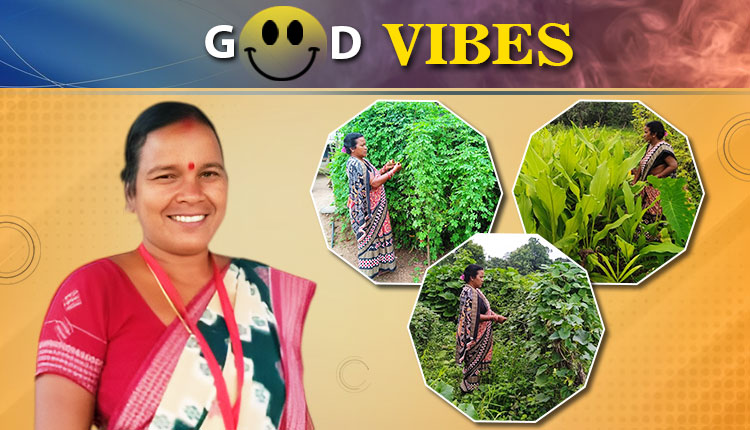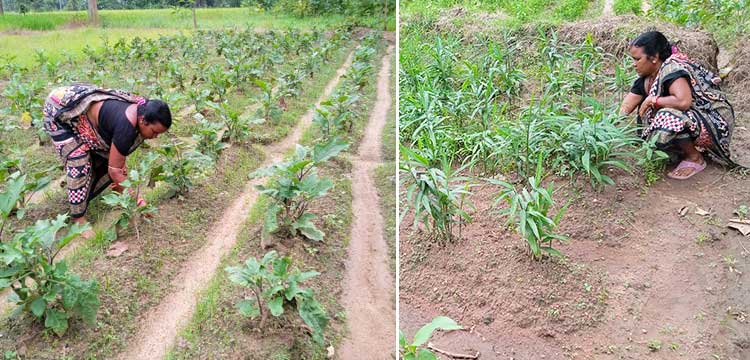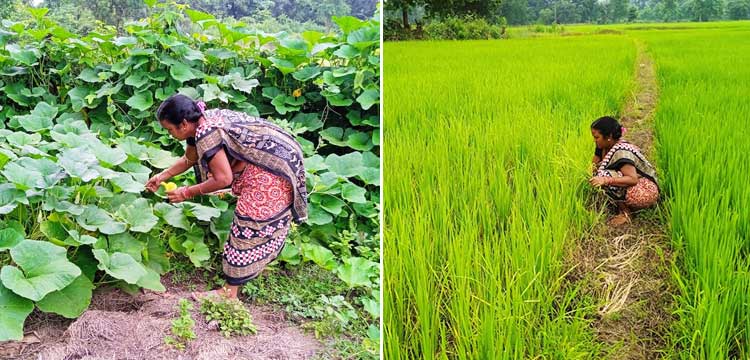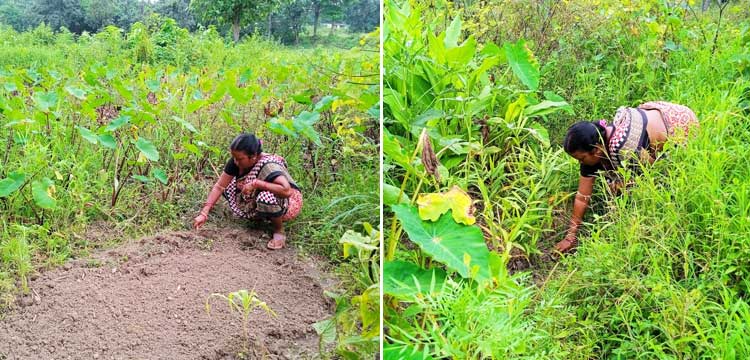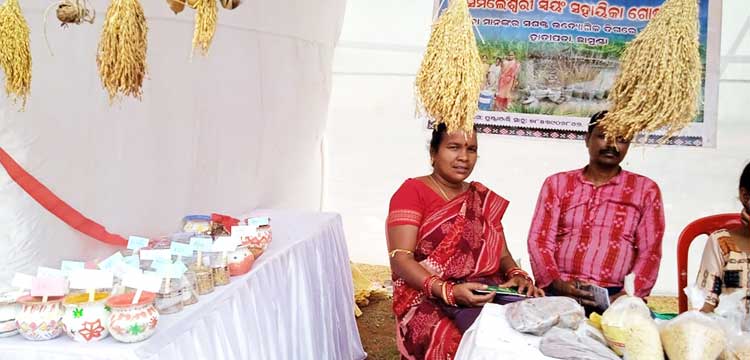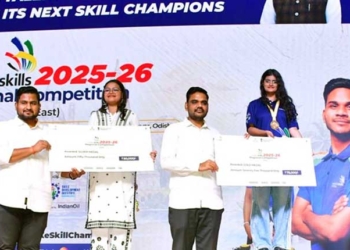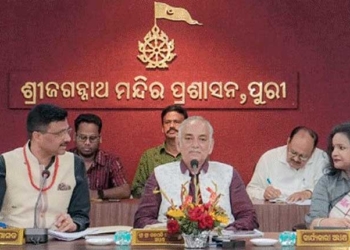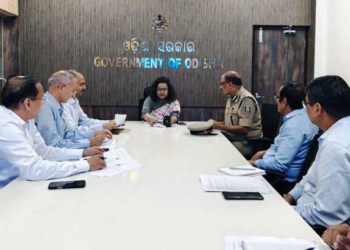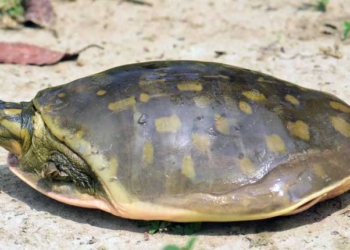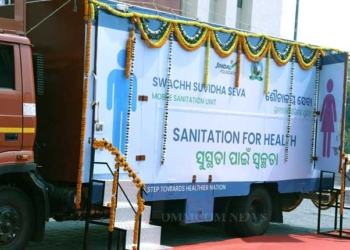Gone are the days when women got married in their teens, bore children soon after, and spent most of their lives cooking meals and tending livestock. Today, whether it’s agriculture, avian engineering or marine engineering, women are leaving their mark in every arena. Across the globe, women’s leadership in agriculture is gaining recognition. The role of women in farming is shifting dramatically—from invisible hands behind the scenes to visible leaders shaping the future of this essential sector. In Odisha, women such as Puspanjali Sahu of Sambalpur are rewriting the rules of farming and redefining relationships within their communities.
Puspanjali’s family consists of her husband, mother‑in‑law and a daughter. Her husband is deaf‑mute from birth and cannot do any outside work. Her mother‑in‑law used to work in the fields, and whatever she earned keeps the family afloat. As age advanced, it was difficult for her to become farm work. Amidst all this, Puspanjali thought of stepping out and helping shoulder the family’s burden. Her mother‑in‑law and husband supported her wish. Since 2020, with her own efforts, the 35‑year‑old Pushpanjali has been cultivating rice by organic methods and also conserving indigenous seeds.
In a candid conversation with Ommcom News, Puspanjali opens up about her journey of perseverance. She recounted how, after moving to Hatipada with a deaf‑mute husband and a mother‑in‑law who toiled in the fields, she decided to step out of the kitchen and take charge of the family’s finances. Since 2020 she has cultivated four acres of land, turning two acres into a showcase of nine indigenous paddy varieties grown organically, while also coordinating labour and selling the harvest herself.
Forty kilometres away from Sambalpur city, Hatipada village is surrounded by forest. The village lies in an elephant corridor. In the evenings, passing of elephant herds near the village is a natural sight, so solar fencing has been installed around the village. And Puspanjali is a woman farmer of this village where she grows nine varieties of indigenous paddy using organic methods. It is really surprising that she earns roughly Rs 3 lakh annually from farming activity.
Puspanjali isn’t just a rice grower—she’s a front‑line champion of the native‑seed collection movement. In her own words: “We have been organic for five years now, steering clear of any synthetic fertilisers or pesticides. Our fields run on fertilizers such as jeevamrit, handi khata, brahmastra, nimastra and similar natural preparations. This season we’re cultivating nine traditional paddy varieties.”
She further said, “Organic indigenous paddy fetches a higher price than ordinary rice. The rice produced from native paddy sells for Rs 80–120 per kg. I cultivate nine varieties—Kusumakali, Suna Harina, Shiraga, Samba, Suna Kathi, Badali Buta, Lal Balsa, Karpurabasa, Kala Jira—and store the seed at home. I also share these seeds with local farmers to help preserve them. I manage to earn roughly Rs 3 lakh annually from farming activities.
Her work with native seeds has earned her recognition at district‑level events in Sambalpur, Nuapada and Koraput.
Puspanjali, however, attributed her success to Patang, a local civil‑society organisation, for providing training and the necessary technical support that helped her carve a niche in organic farming.
“Willpower is essential for farming. I love to raise awareness so that more people adopt larger‑scale organic farming and preserve more indigenous seeds. Being a woman, I always encourage women: saying them “Don’t be afraid, step forward, work, and you won’t face any difficulty. I wanted to prove that a woman can shoulder the family’s burden, even when the odds are stacked against her and I’m just getting started,” said Puspanjali smilingly before signing off.
By Rashmi Rekha Das




